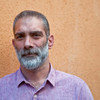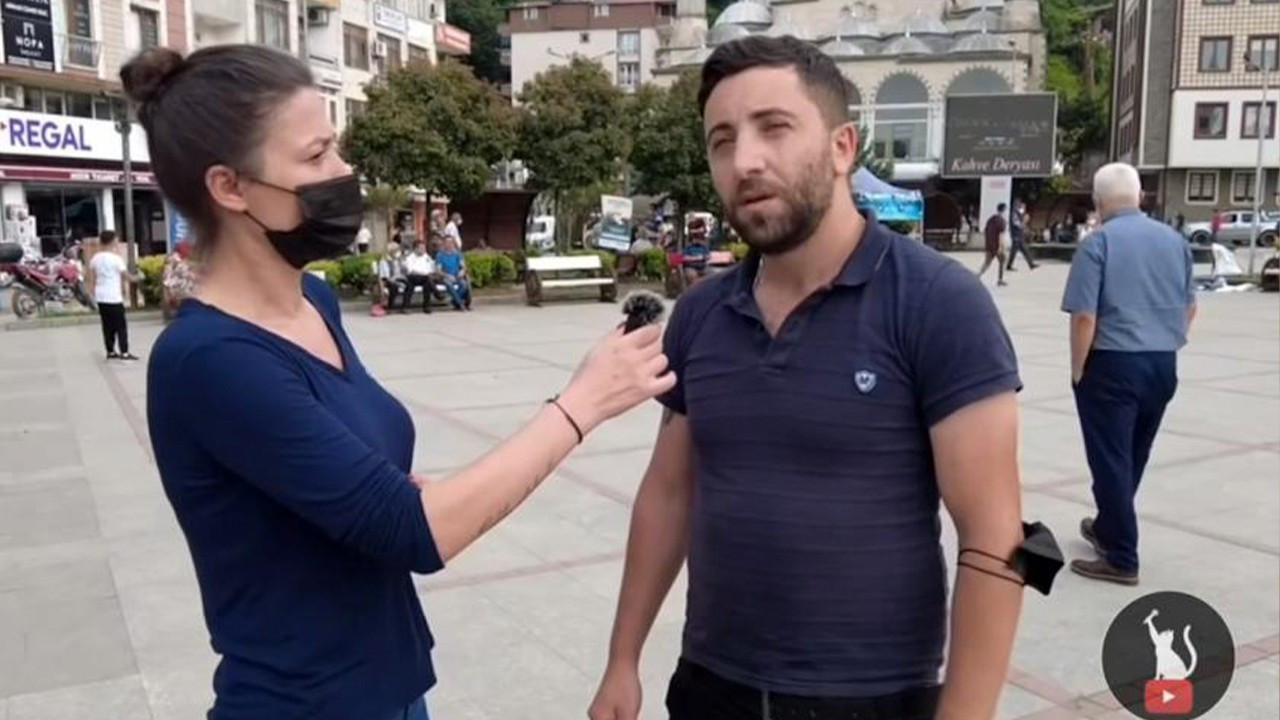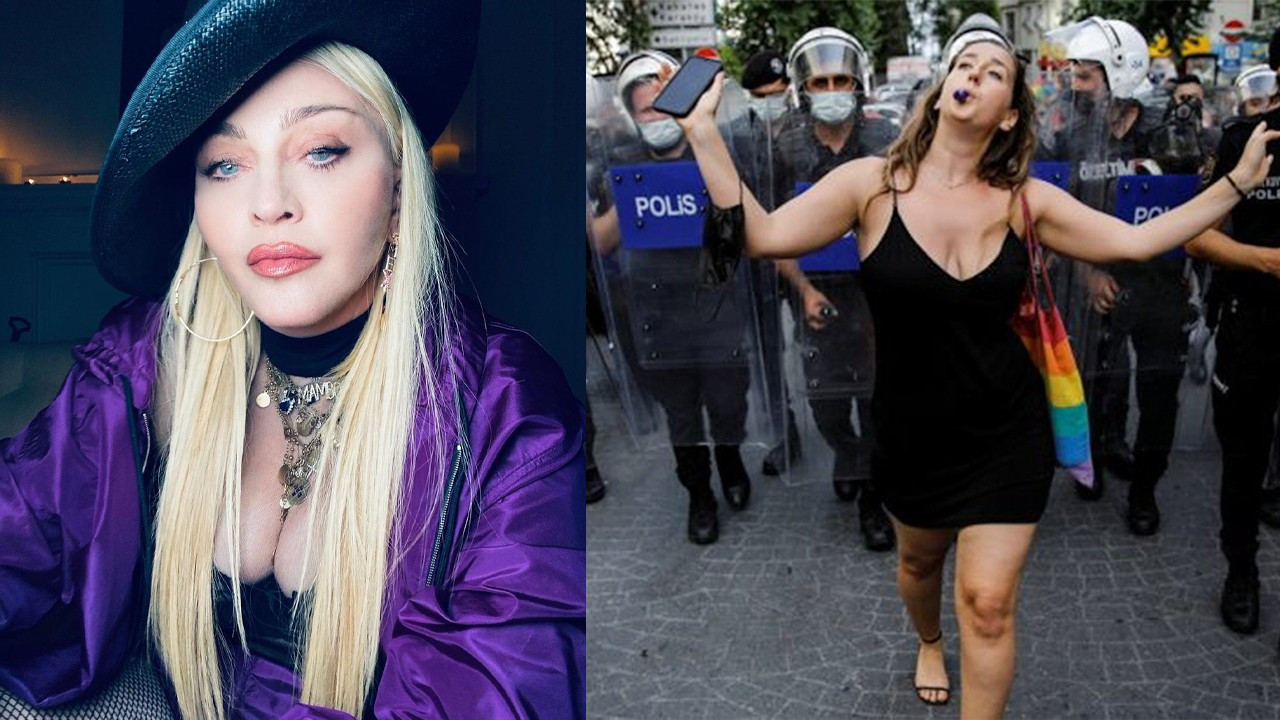Opression, resistance and anarchic foreign policy
Nobody in their sober minds would dare to predict that Erdoğan's AKP will stay in power for 72 years like the Chinese Communist Party. Today, even 72 months look like a far too long of a stretch for Erdoğan. The prevailing ambiance in Turkey is one of “fin de règne” to put it timidly, if not one of outright implosion in corruption, despotism, nepotism and kleptocracy. And ever changing forms of oppression in Turkey create their own answers in new forms of resistance.
To the East, Chinese Communist Party (CCP) celebrated its’ 100th anniversary of its’ foundation and its’ 72nd year in power. To the West, the abstention rate in the recent French regional elections reached 66 per cent, even 83 per cent among 18-24 year olds. In Turkey, Erdoğan’s AKP is in power since 2002 and the next general and presidential elections are scheduled for 2023. All opinion polls results indicate that Erdoğan will lose the presidency against almost any opposition contender.
The prevailing ambiance in Turkey is one of “fin de règne” to put it timidly, if not one of outright implosion in corruption, despotism, nepotism and kleptocracy. This outcome may be direct result of the “folie de grandeur” of Erdoğan. A simpler reasoning can be construed upon his political survival instinct and all that entails. Erdoğan’s swerving foreign policy moves and the yawning gap between his words and deeds is part and parcel of that same sum.
Looking from outside in, the above mentioned “implosion” is seen as a potential mother of all black holes for the West. From inside out, some likens that coming doomsday scenario to a positive big bang for creative chaos. Hence, the West (the U.S. and the EU combined) decouples the technical from the political while at the same time Erdoğan reciprocates by attempting to draw a bold line between his domestic and foreign policies.
Given these conditions, with a furtive nod and a wink to the passing away of Rumsfeld, we can predicate that freedom is definitely not on the march in Turkey. Still, some observers of a more optimistic inclination see heartening “shepherd fires” on hilltops. That to me is a tad bucolic. Kurds, women, university students, LGBTIQ+’s and ecologists stand out as focal groups of lively and contemporary opposition. But the social opposition lacks coordination and rejects leadership.
In Turkey the so-called working class are traditionally more of a conservative nature. Being conservative is different in Turkey than in Europe, as it is seen as a means to acquire more wealth and not to protect its acquired status, to put it vaguely. The “democratic” opposition rests on the laurels of its’ local election wins and is convinced that the growing deterioration in income distribution, lack of rule of law and increasing poverty will carry them to power on its own.
Those political parties look geriatric, male and rusty perhaps with the exception of the HDP. They have difficulty in adapting themselves as vehicles of the rising objection. Even worse, often times they give the impression that, that objection spoils their politicking. The objection in itself did not yet acquire critical social mass as well. Also needs to be taken into consideration that democracy in Turkey is seen as an exercise conducted from election to election. The participation rate hovers almost beyond 80 per cent.
Ergo, the opposition is in a false dilemma between appealing to the voters by cultural or economic propaganda. Foreign policy is way down in their agenda. If one possible explanation is the opposition’s striking provincialism, another may be that they stick with the old dictum that one cannot win an election with foreign policy arguments but can lose one on that ticket.
The above slapdash blueprint and more should also be visible to the clear eye from the West. The preferred diplomatic methods applied in this difficult situation are those of transactional as opposed to strategic partnership and engagement with few strings attached as opposed to sanctions. We are almost getting closer to the classic “the devil we know” approach if we are not already there.
Furthermore, pluralism is still anathema in Turkey’s politics. If not hidden somewhere in what western pundits mistakenly insist on labelling “pro-Kurdish” HDP’s name (Peoples’ –in plural form- Democratic Party) it is rare commodity. Participatory democracy, agency, decentralisation are also foreign galaxies. Suspicion from the US in particular but also from the West in general is as rampant among those who call themselves members of the “democratic” opposition as the ruling islamo-nationalist coalition.
"Freedom's untidy, and free people are free to make mistakes. (…) Stuff happens." late Donald Rumsfeld had said (on Iraq). A lot of “stuff” happens in Turkey indeed. So much so that one can hardly lift her/his head to gaze at the global techtonic shifts. The democratic opposition does not seem to agree on who to join company with in reaching that ultimate destination: Freedom. Whether they agree on the definition of freedom is dubious as well.
Nobody in their sober minds would dare to predict that the AKP will stay in power for 72 years like the CCP in China. Today, even 72 months look like a far too long of a stretch. Nobody either can claim that the abstention rate in the next elections will emulate the likes of France, or from a different angle, the likes of Algeria. It is also true that Turkey, if still a headache for the West, has nowhere near the global magnitude of China. Yet, unlike Algeria, Turkey is also European and carries indispensable weight within the Atlantic defence community.
Ever changing forms of oppression in Turkey create their own answers in new forms of resistance. It is a learning process to find out what works and what works not. The people’s plurality is in constant contradiction with the state’s imposed oneness. Political representation is still understood as a full delegation of a power of attorney. That welcome plurality in democratic members of the western world seems to be considered by that same West as unwelcome instability when it comes to Turkey.
Erdoğan himself appears oblivious to criticism of his foreign policy even though he is hard squeezed in financial dire straits. All the more so that lately he appears to retort back his previous self, at least in rhetoric and as witnessed for example in his latest remarks about Cyprus, to reassert the fact he has not changed a bit.
Fiery rhetoric is what Erdoğan is convinced will gain him back his lost popularity while he needs the financial lifeline from the West by appearing to play along. That’s his “en même temps” alla turca. What is bedevilling for the western decision maker is that Turkey’s foreign policy seems like it will to continue to remain unpredictable in the future even if Erdoğan’s swerving hand at the steering wheel is replaced by his successor’s suggested steadier one or not.


 Turkish man detained for saying Erdoğan was 'talking nonsense'Human Rights
Turkish man detained for saying Erdoğan was 'talking nonsense'Human Rights Madonna shares video from Istanbul Pride: Why are there so many police?Culture
Madonna shares video from Istanbul Pride: Why are there so many police?Culture